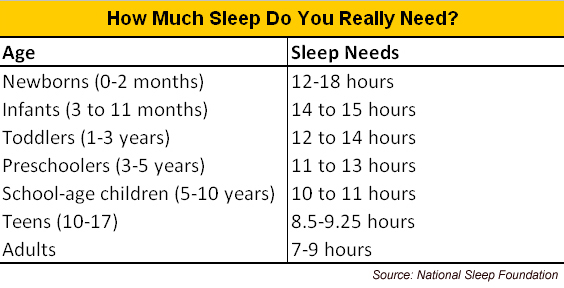STRESS ADDS FLAVOR, challenge,
and opportunity to your life.
YOU ARE STRETCHING yourself
and learning new things.

Stress Management
Preventing and Managing Stress
|
STRESS ADDS FLAVOR, challenge, |
YOU ARE STRETCHING yourself
|
But it is very important to find the optimal level of stress.
How do you know if you are experiencing excess stress?
To help determine how much stress you experience on a daily basis, answer the following questions.
Experiencing some of the stress-related symptoms or answering "yes" to a few questions is normal. However, if you experience a large number of stress symptoms or you answered "yes" to a majority of the questions, you are likely experiencing a high level of stress.
(Source: http://www.mhhe.com/socscience/hhp/wellness/008.htm)
Continue to Page 2 to learn about the signs and symptoms of stress.
When you are experiencing stress, your body produces STRESS HORMONES such as CORTISOL and ADRENALINE resulting in increased heart rate and blood pressure, increased temperature, sweating, or shaking. You cannot maintain this level of alertness!
Are you overwhelmed by stress?
|
|
|
|
|
Physical Symptoms |
Thoughts and Feelings |
Behavioral Symptoms |
|
|
|
(Source: http://www.mayoclinic.com/health/stress-symptoms/SR00008_D)
Now that you have learned some of the signs and symptoms of stress, see if you can sort these cards into the correct categories:
![MCj04238380000[1]](paste_image1.gif) Stress is a part of almost every student's daily life. Your personal stress requirements and the amount which you can tolerate before you become distressed vary with your life situation and your age.
Stress is a part of almost every student's daily life. Your personal stress requirements and the amount which you can tolerate before you become distressed vary with your life situation and your age.
As a college student, the greatest sources of events you experience as stressful are likely to be relationships, academic and social situations, environment and lifestyle.
Leaving home or commuting daily, managing finances, living with roommates and juggling a job, classes, and relationships all contribute to the normal stress of being in college. It is also not uncommon for students to feel overwhelmed and anxious about wasting time, meeting high standards or being lonely.
 In addition, stress can also come from exciting or positive events. Falling in love, preparing to study abroad, or buying a new car can be just as stressful as less happy events.
In addition, stress can also come from exciting or positive events. Falling in love, preparing to study abroad, or buying a new car can be just as stressful as less happy events.
It is crucial to recognize stressful situations, address them, and develop strategies to manage your stress.
1. Take a Deep Breath
2. Relax Your Muscles
3. Manage Your Time
4. Take a Musical Detour
5. Get Plenty of Rest
6. Exercise
7. Connect with Others
8. Take a Break
|
|
Feeling stressed evokes tense, shallow breathing, while calm is associated with relaxed breathing (Kovacs). So, turn tension into relaxation! Let's try it:
If you have a hard time breathing from your abdomen while sitting up, try lying on the floor. Put a small book on your stomach, and try to breathe so that the book rises as you inhale and falls as you exhale.
(Source: http://helpguide.org/mental/stress_relief_meditation_yoga_relaxation.htm)
|
Getting a massage provides deep relaxation, and you don't have to visit the spa to enjoy the benefits of massage. There are many simple self-massage techniques you can use to relax and release stress.
|
Scalp Soother
|
Place your thumbs behind your ears while spreading your fingers on top of your head. Move your scalp back and forth slightly by making circles with your fingertips for 15-20 seconds.
|
|
Easy on the Eyes
|
Close your eyes and place your ring fingers directly under your eyebrows, near the bridge of your nose. Slowly increase the pressure for 5-10 seconds, then gently release. Repeat 2-3 times.
|
|
Sinus Pressure Relief
|
Place your fingertips at the bridge of your nose. Slowly slide your fingers down your nose and across the top of your cheekbones to the outside of your eyes.
|
|
Shoulder Tension Relief
|
Reach one arm across the front of your body to your opposite shoulder. Using a circular motion, press firmly on the muscle above your shoulder blade. Repeat on the other side.
|
Source: Northwestern Health Sciences University
|
Make a list.
|
Try It!
|
|
Deal with tasks and assignments in some priority.
|
Try It!
|
Music can calm the heartbeat. Research shows that 30 minutes of classical music may produce calming effects equivalent to taking 10 mg of Valium
Try it!

Adequate sleep is critical for stress management and overall wellness, but it is something that many college students fail to obtain.

The following strategies can help you get a better night's sleep:
Source: http://www.mhhe.com/socscience/hhp/wellness/014.htm
|
It pumps up your endorphins
|
Physical activity helps to bump up the production of your brain's feel-good neurotransmitters, called endorphins. Although this function is often referred to as a runner's high, a rousing game of tennis or a nature hike also can contribute to this same feeling.
|
|
It's meditation in motion
|
After a fast-paced game of racquetball or several laps in the pool, you'll often find that you've forgotten the day's irritations and concentrated only on your body's movements. As you begin to regularly shed your daily tensions through movement and physical activity, you may find that this focus on a single task, and the resulting energy and optimism, can help you remain calm and clear in everything that you do.
|
|
It improves your mood.
|
Regular exercise can increase self-confidence and lower the symptoms associated with mild depression and anxiety. Exercise also can improve your sleep, which is often disrupted by stress, depression and anxiety. All this can ease your stress levels and give you a sense of command over your body and your life.
|
Virtually any form of exercise can act as a stress reliever. Even if you are not a weight lifter or a track runner, you can still include exercise in your daily routine.
|
Take advantage of the free resources offered right here at the TCC Fitness Center and Gym! |
|
|
Hours of Operation
|
General Services
|
|
Aerobics Classes
|
Personal Training
|
If you want to improve your mental health and your ability to combat stress, surround yourself with at least a few good friends and confidants. Here are some ideas for building your social network:
|
Volunteer
|
For opportunities at TCC, click here.
|
|
Join a Student Club or Organization
|
For opportunities at TCC, click here.
|
|
Intramural and Club Sports
|
For more information, click here.
|
Take a couple minutes out of your day to clear your mind!
Try these fun activities:
|
Simon:
|
Funny Bubbles |
|
Virtual Zen Aquarium
|
|
|
Career Services Center |
850.201.9970 |
|
Campus Life |
850.201.8427 |
|
Disability Support Services |
850.201.8430 |
|
International Student Services |
850.201.8840 |
|
Learning Commons |
850.201.8193 |
|
Mental Health Services |
850.201.8440 |
|
Student Success Center |
850.201.8440 |
|
Telephone Counseling (24 hr. Crisis Hotline) |
call 211 |

Sign into TCC Passport and take a short survey.
Your feedback will help us improve the Stress Management Skillshop.
Thank you!